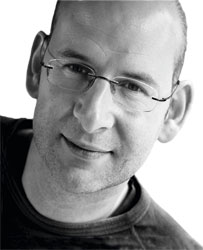 While Manchester United were wondering at their 19th league title – Alex Ferguson’s remarkable 12th – before contemplating the Champions League Final against Barcelona, Chelsea, who finished second in the Premier League, were issuing a clarification. Roman Abramovich’s club had not, in fact, sacked Carlo Ancelotti on a staircase at Goodison Park minutes after the defeat to Everton. In fact, they had done so in a back room.
While Manchester United were wondering at their 19th league title – Alex Ferguson’s remarkable 12th – before contemplating the Champions League Final against Barcelona, Chelsea, who finished second in the Premier League, were issuing a clarification. Roman Abramovich’s club had not, in fact, sacked Carlo Ancelotti on a staircase at Goodison Park minutes after the defeat to Everton. In fact, they had done so in a back room.
That was how the Russian oligarch dispensed with his latest manager, Ancelotti being rapidly considered, like all the others in the eight years since Abramovich bought Chelsea in 2003, not good enough, after winning the league and FA Cup double the previous season.
While Ferguson’s grand, dynastic achievements at United seem somehow to transcend the financial vulgarities of the Premier League era and his own club, when Abramovich behaves like this it reminds us of how jarring his presence is in the culture of English football. We have grown used to him, and the £734million he has poured into Chelsea; it is even widely interpreted as a good thing for introducing competition with United’s dominance, but Ancelotti’s sacking again prompted questions about the prominence of Abramovich.
The source of his unholy fortune is no secret, although many of us were unaware of how scandalously post-communist Russia was carved up until this oligarch bought Chelsea and we educated ourselves.
Abramovich was one of a tiny coterie who ingratiated themselves with the president, Boris Yeltsin, then, in a “loans for shares” stitch-up, were given vast tracts of Russia’s state-owned assets for a fraction of their true value. Abramovich emerged with one of the country’s vast oil concerns, Sibneft, and became an instant billionaire, while the vast majority of the country’s huge population were plunged into poverty and insecurity much harsher than under communism’s latter years.
Abramovich is said to have first “fallen in love with football” watching the 2003 Champions League quarter-final between United and Real Madrid. His reaction to feeling besotted by the green of the pitch, the flowing action, the brilliant floodlights and swell of the crowd, was not to become an enthusiast and fan, but to buy a club.
Real Madrid, as we know, are not available to buy because those kings of European football, and their great rivals Barcelona, are still owned by their member-supporters and so not for sale.
In England, however, despite this being the era of great earnings, all clubs, as one exasperated Liverpool supporter once quipped, “have been on ebay for years”.
Abramovich is understood to have looked at Tottenham Hotspur before turning to Chelsea, where Ken Bates and the anonymous shareholders were having financial difficulties and agreed to sell.
Abramovich set the template for Sheikh Mansour at Manchester City, with the aim to instantly win trophies, particularly the Champions League, where Abramovich’s “love for football” had been kindled.
Peter Kenyon, the chief executive who came from United where Ferguson took seven years to win his first championship, preached long-term building and for Chelsea to be financially self-sufficient by 2010.
Chelsea made a £78m loss instead last year, then Abramovich, frustrated that his club were trailing Ferguson’s, suddenly lashed out in January, £50m on Fernando Torres, and £25m for David Luiz. This was still not enough for Chelsea to claw United back, and so Ancelotti had to follow Claudio Ranieri, Jose Mourinho, Luiz Felipe Scolari and Avram Grant.
At United, despite the Glazer family takeover and commercialism which have alienated many fans, the heart of a football club still beats. But at times like this it is difficult to see in Abramovich’s Chelsea many sporting values to cherish.
By David Conn


